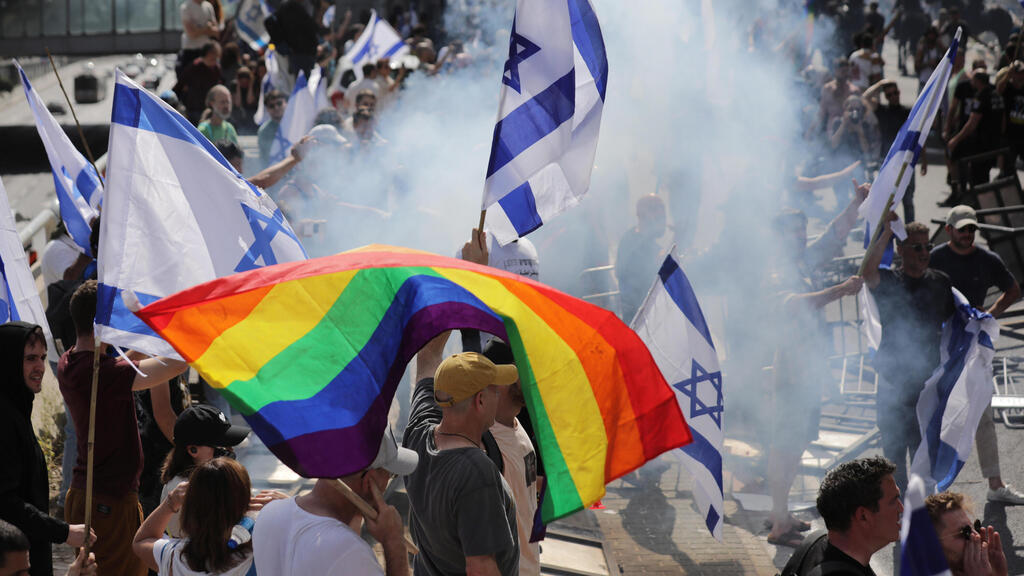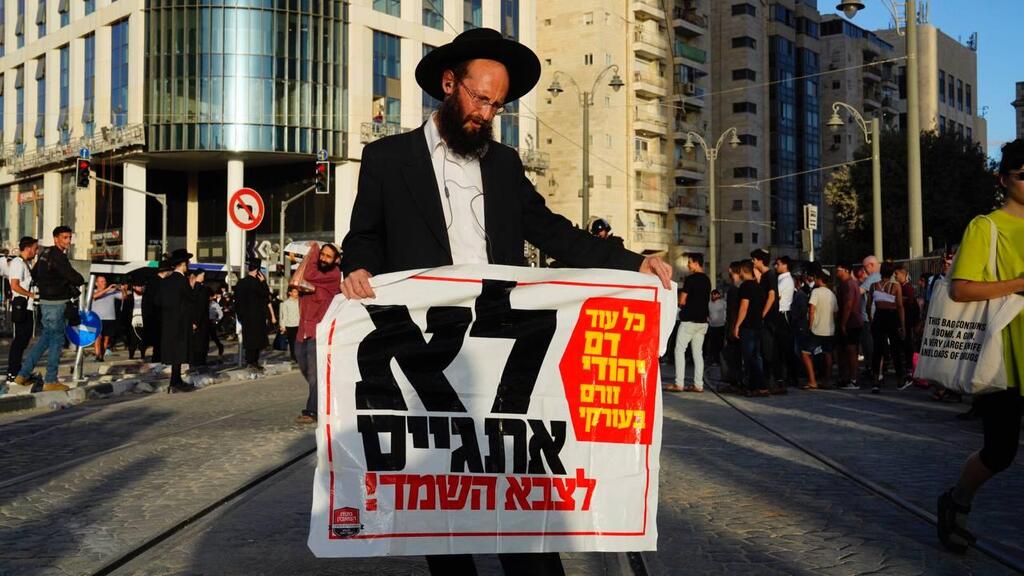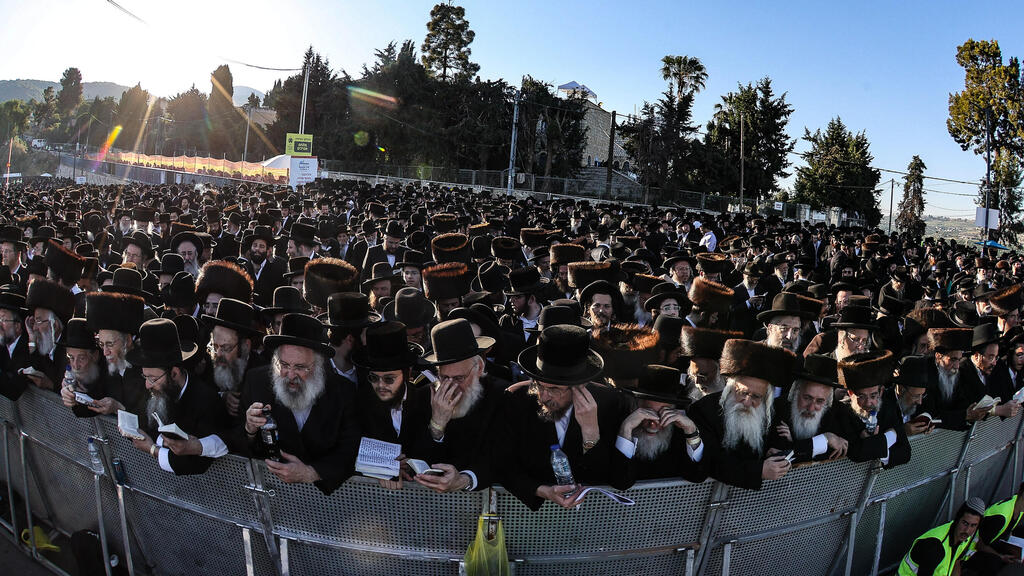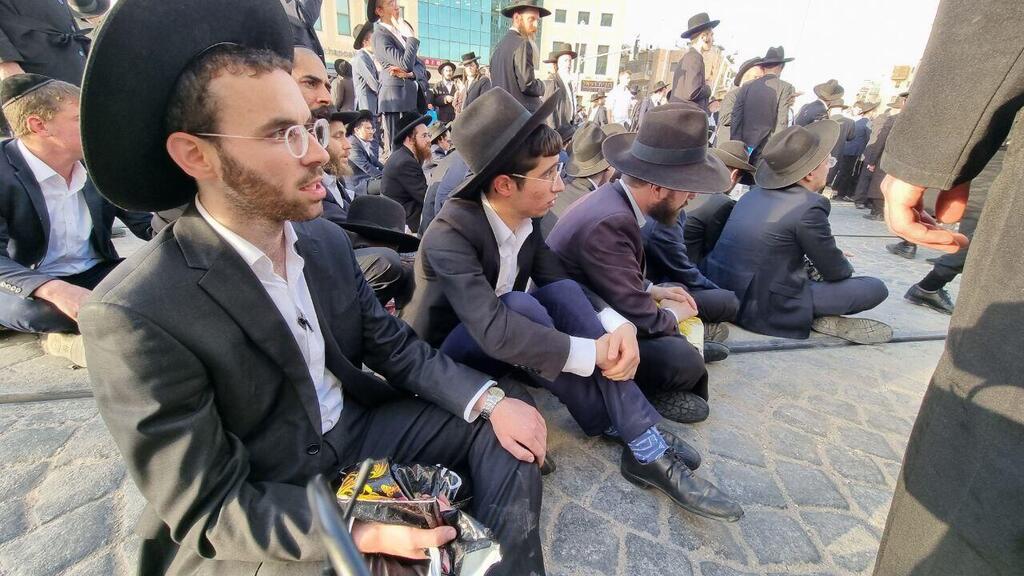It is not about the government's proposal to reform the judicial system and not the criminal trial of Prime Minister Benjamin Netanyahu. It is not about the occupation or the high cost of living. It is not even about the alleged social inequality and racial injustice.
It is about anxiety and deep-rooted fear. Large swaths of Israel's secular-liberal society are in the throes of a historic process of mourning.
The truth is that the ultra-Orthodox population is growing at an unprecedented rate in Israel. Its annual growth stands at 4.9% - compared to the 2.5% growth of the secular population.
The number of ultra-Orthodox Israelis doubles every 15 years, which will make that sector one-third of Israel's population within three or four decades, provided the trajectory is not reversed.
Israelis have been living with those figures for years. They have been known and recorded by the Central Bureau of Statistics, (CBS) the Education Ministry and the IDF. But the secular public has been in denial.
The results of the recent elections and the legislative blitz that ensued, have pushed those who have been denying the numbers to the next phase: outrage.
Hundreds of thousands of Israelis were now in the midst of an existential crisis, with a right-wing and religious coalition set to implement their campaign platform. They rightly understood that Israel was changing and will continue to change in the foreseeable future.
Dire prophecies of a future mirroring Afghanistan or Tehran were thrown up in the air, causing a rush to immigrate, remove funds to overseas' accounts and fall into total despair.
The panic was fueled by politicians who - on one side of the political divide - childishly and stupidly perpetuate the prophecies of doom, while on the other, irresponsible and incomprehensible legislation was being advanced along with threatening rhetoric and glee over the dread of opponents.
The vast majority of opponents of the government are patriotic Zionists, who view all ultra-Orthodox as one entity, a bunch of draft dodgers, primitive people, parasites whose lives are paid for by the secular tax-paying Israelis.
Those protesters believe the Haredi sector aims to turn Israel into a religious theocracy where women would be silenced, and adulterers stoned to death. That is the source of their dread - not the judicial system overhaul.
I know this because I have been on both sides of the divide. I remember myself as a young student shouting anti-Haredi slogans in demonstrations. I, at the time, did not personally know any ultra-Orthodox people, but believed that I was right and feared a growing ultra-Orthodox population would overrun the country.
Many years later, that anxious student realized the prophecies had not materialized. The Haredi population had grown considerably, but there was no religious coercion and Israel continued to thrive.
In time, I learned to see the different nuances in the ultra-Orthodox community, I sought out and befriended people there, and understood that apart from our daily routines and practices, we are all the same.
We all hope to live in a free society, support our families and provide our children with education and a safe environment. I recently met an American entrepreneur who invests in start-up companies in Israel and around the world.
"Do you know why I mostly believe in the start-up companies established in Bnei Brak?" he asked, "because they work harder and are more motivated. They never sleep. They come with an open mind to the world and have a fresh and naïve perspective. They see what others miss and I tell you if given the chance, they would be Israel's greatest economic engine with more potential than anywhere else in the world and not a burden on the economy."
According to CBS data, the rate of employment among Haredi women reached historic highs of 85% in 2021, equaling figures for non-Haredi, Jewish women in high-tech and other technology fields.
If the anti-government protesters would realize that they were not lamenting the legislation, but a growing ultra-Orthodox population, we could all begin to think clearly, have real empathy toward each other and more importantly, work together for a better future.
Israel, which may be more ultra-Orthodox in its demographics, would know how to make the best use of its citizens to improve the lives of all.





